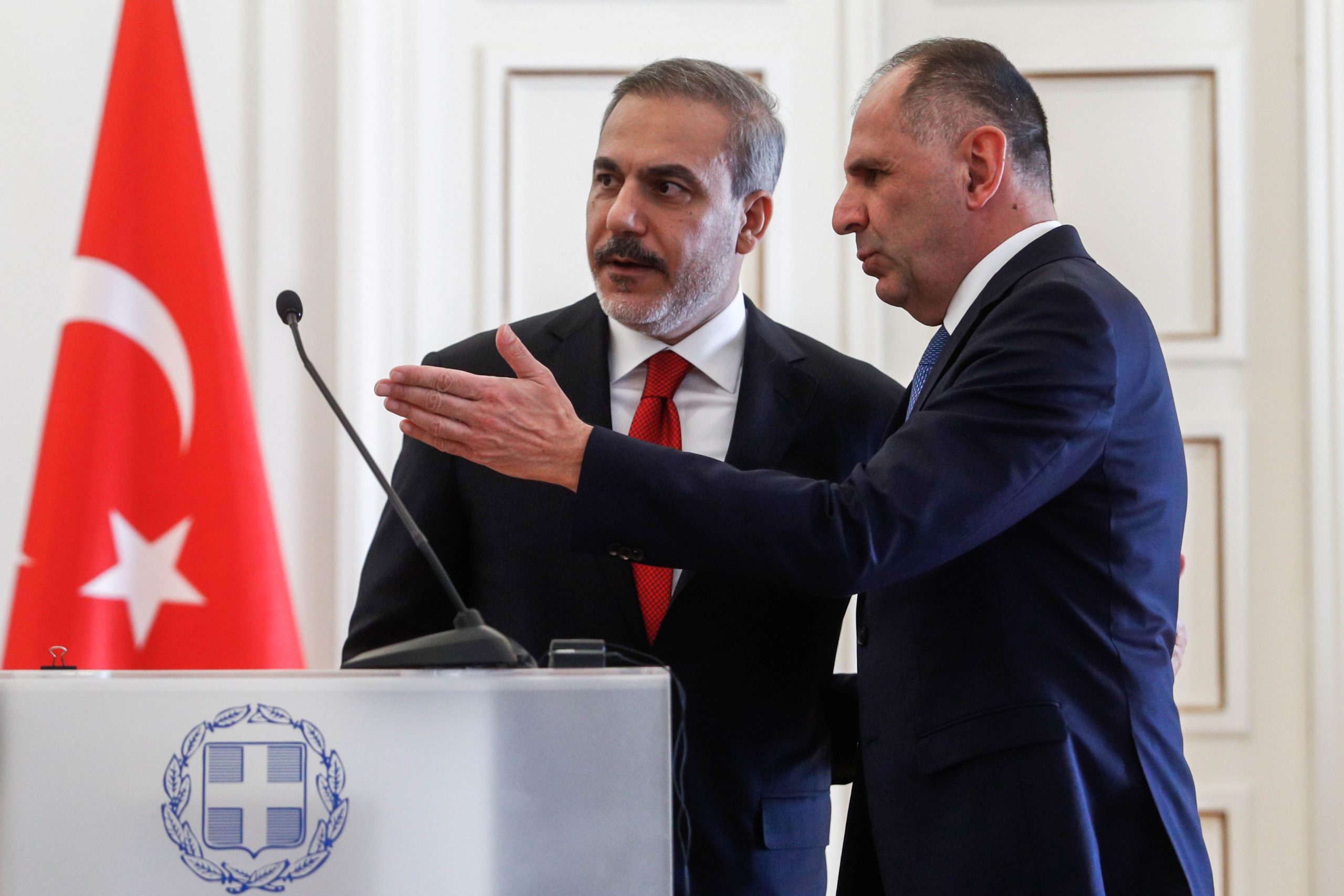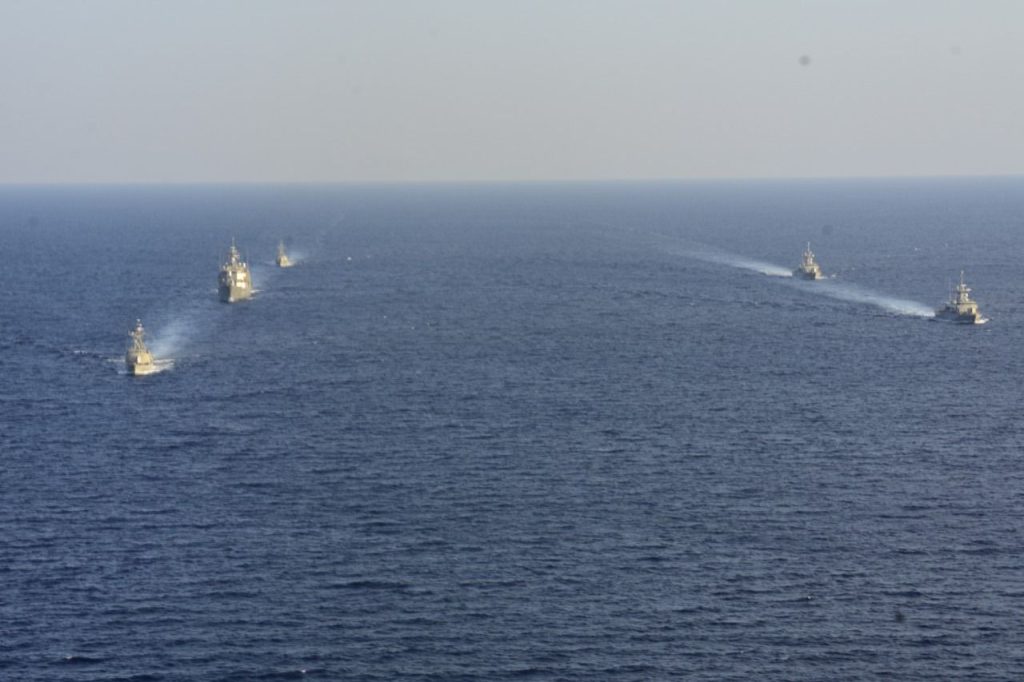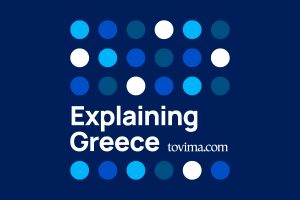Greek FM George Gerapetritis on Monday again categorically denied that any sort of “secret” or “hidden” diplomacy is underway with neighboring Turkey to resolve whatever differences – the majority of which are long-standing Turkish claims and unilateral interpretations of international law and treaties.
Speaking a day before an official visit to Athens by new NATO Secretary General Mark Rutte, Foreign Affairs Minister George Gerapetritis spoke from Parliament’s podium, and in reply to criticism emanating mostly from the right of ruling conservative New Democracy (ND) party.
“Don’t raise the issue of secret diplomacy again. I don’t think that there’s ever been a (foreign) minister in the post-1974 period who has briefed Parliament in such a detailed and systematic manner, as is currently the case,” Gerapetritis, the main “target” of such criticism, said.
At the same time, he said his recent meeting with Turkish FM Hakan Fidan merely confirmed the long-standing differences in opinion between Athens and Ankara over the sole issue that the former believes is outstanding: a delimitation of the continental shelf in the Aegean Sea and the more expansive concept of Exclusive Economic Zones (EEZ) in the eastern Mediterranean.
“We did, indeed, disagree. We disagreed without concessions, without backtracking, without a reduction in our sovereignty. Do you think we should stop talking to each other?” Gerapetritis asked, in response to a tabled question by a deputy of the left-of-center Plefsis Eleftherias party.
“With a commitment to international law and with diplomatic capital that is greater than ever before, we’ve entered into talks with security, pride and confidence, and we will do what is in the best national interests,” the Greek FM added.
He also again dismissed opposition censure of entering into a dialogue with Ankara as a timid and “frightened” interlocutor.
“The reason we believe there’s a good opportunity for the Greek state to enter into this discussion on difficult issues is precisely because Greece currently enjoys the highest possible level of diplomatic strength; it has a strong international footprint and a strong defense, which has been reinforced over the last five years; Greece fields an economy that’s in a steady orbit. For these reasons, our position is that we still believe in the Greek-Turkish dialogue; a political dialogue, and the positive agenda continues.”
In closing, the Greek FM said that if the “major issue” (i.e. EEZ, continental shelf) isn’t discussed, “we’ll make sure that there will be a continuation of dialogue on other issues, so we avoid tensions and crises in our neighborhood.”
Gerapetritis was the target of scathing criticism by former prime minister and ND leader Antonis Samaras last week, who accused the former – in an interview with “To Vima” – of “appeasement” in the face of Turkish claims and demands. Samaras’ statements led to his expulsion from the party he once headed.



